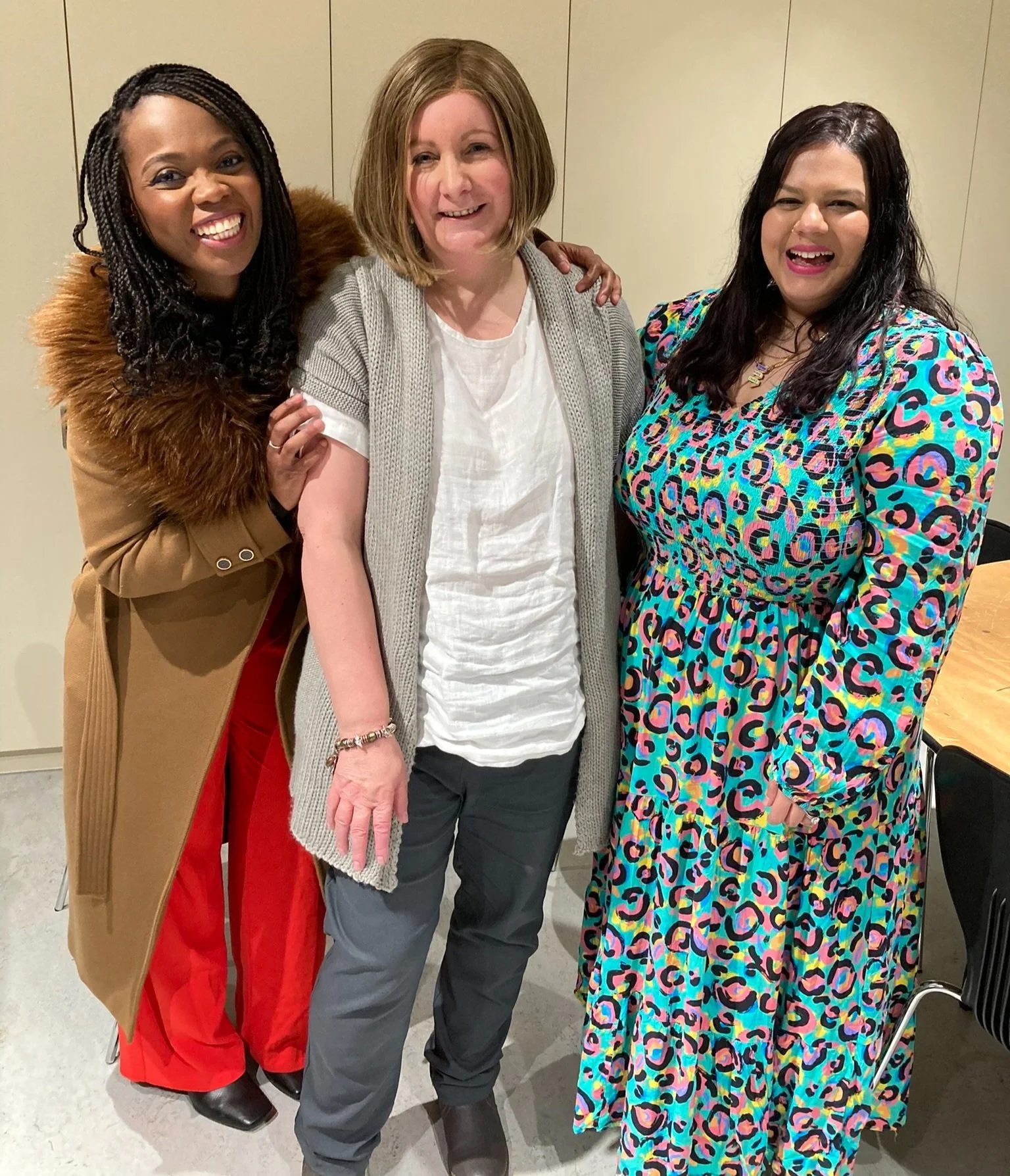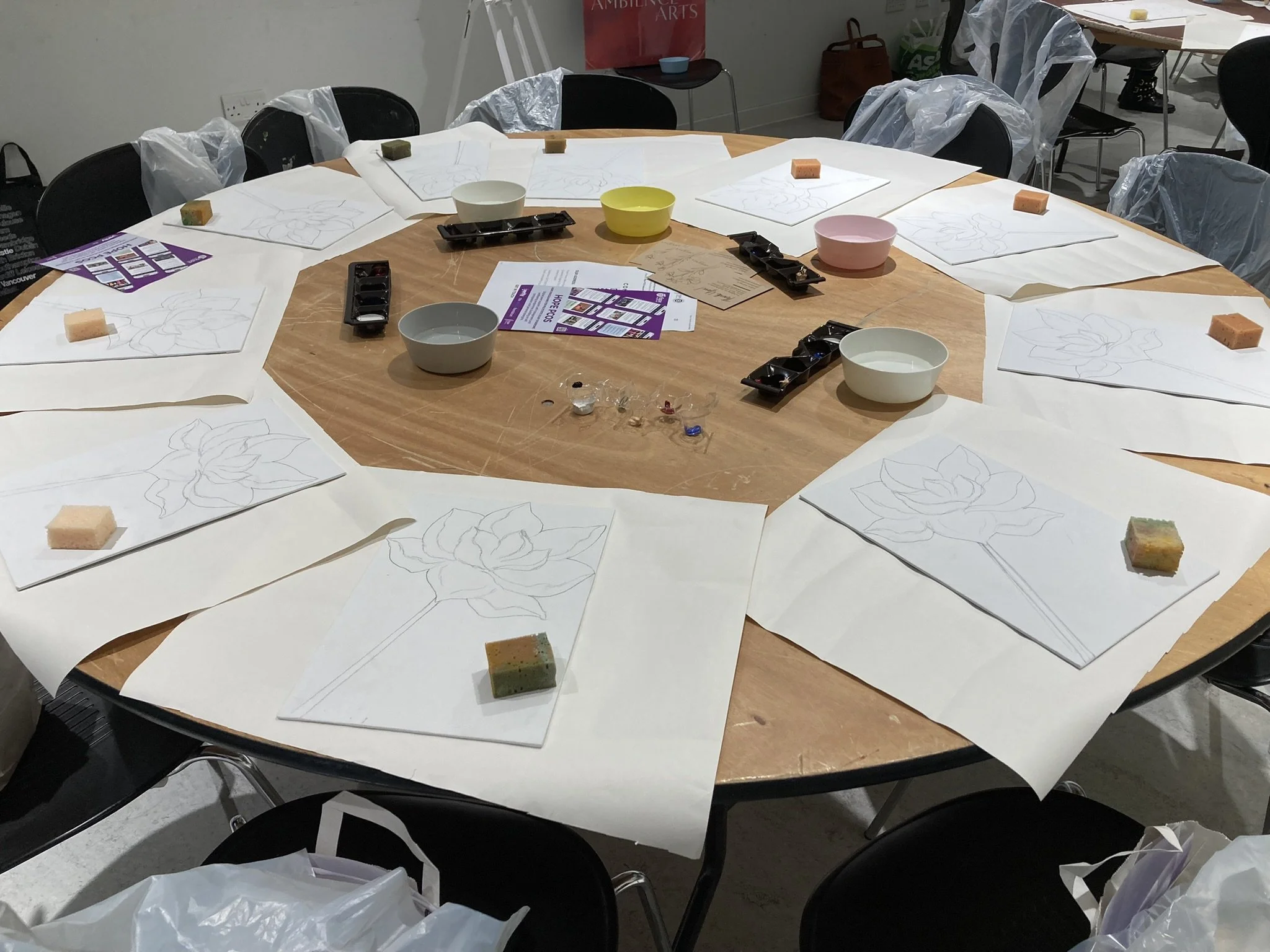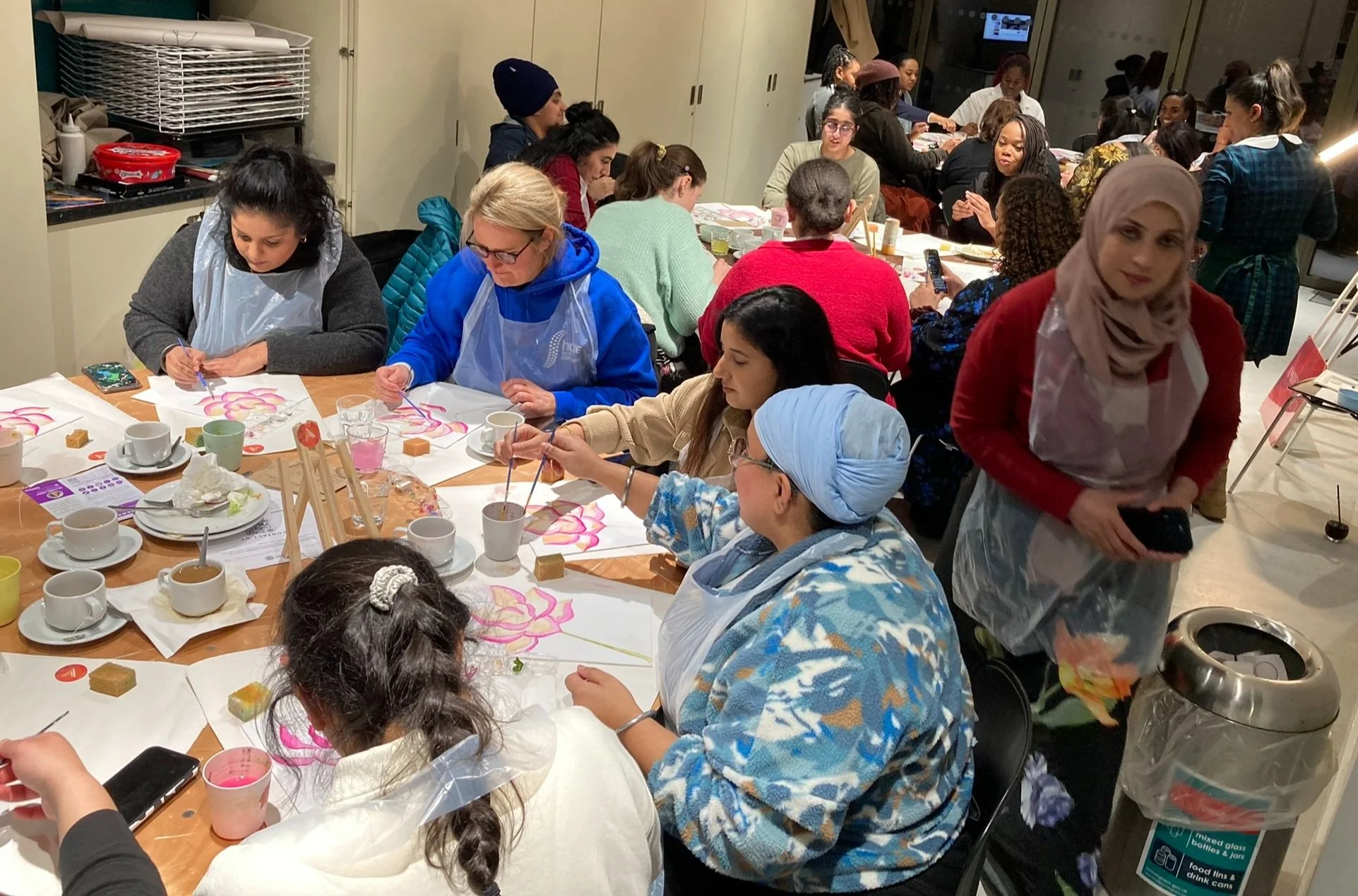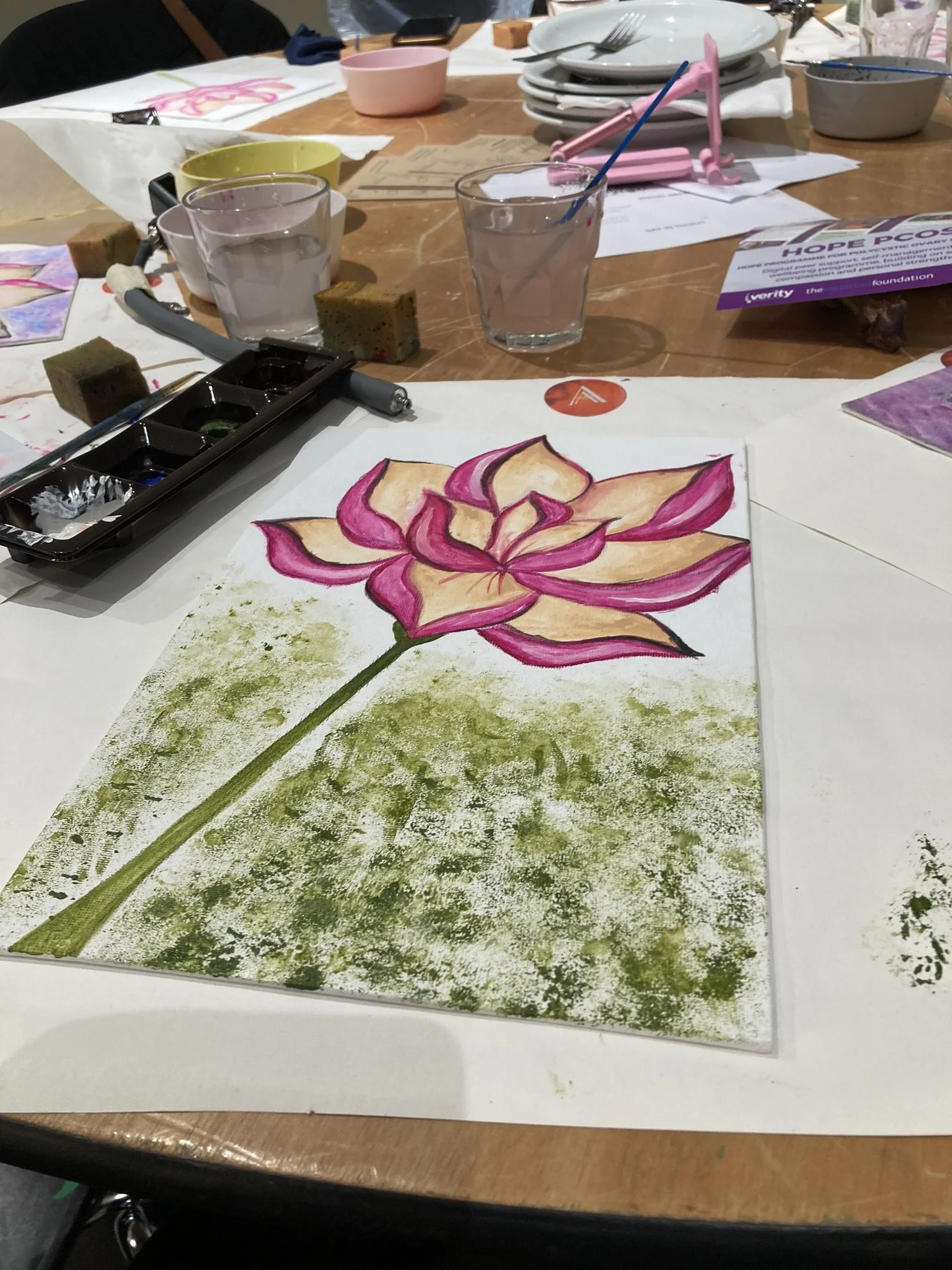HOPE PCOS PAINT AND SIP
Polycystic Ovary Syndrome (PCOS) affects at least 1 in 10 women and adults assigned female at birth, and disproportionately impacts those from Black, Asian, and other minoritised communities. This common hormone condition affects physical health and has significant implications for mental well-being and quality of life.
Together with Neelam Heera-Shergill, founder of charity Cysters, the Hope PCOS team led by Dr Carol Percy hosted a paint and sip event at Midlands Arts Centre, Birmingham on 31st January 2025, with special guest Dr Aziza Sesay. We discussed Hope PCOS, a self-management support course for adults with PCOS.
PCOS and Minoritised Women in the UK
PCOS affects people differently across ethnic groups, with minoritised adults facing unique challenges:
Higher Incidence: Some communities, e.g. those from South Asian backgrounds, are more likely to develop PCOS and other metabolic problems, such as type 2 diabetes.
Mental Health Disparities: PCOS is associated with an increased risk of mental health issues like depression and anxiety, and minoritised adults may feel less able to discuss their mental health concerns with healthcare providers.
Cultural Barriers: Stigma, cultural taboos, and lack of awareness may prevent minoritised adults from seeking help, discussing PCOS symptoms openly, or getting support from the wider community.
The Hope PCOS Course
Dr Carol Percy from Coventry University and the team at Hope For The Community CIC, along with PCOS advocacy group Verity and hospital doctors, created a peer support course for adults with PCOS. Hope PCOS is a 6-week online support course covering six main areas to help manage PCOS better, including dealing with stress, feeling good about yourself, and making healthy lifestyle choices. The course is delivered online, allowing participants to connect with others who have PCOS, share experiences, and learn from peers.
Coventry University has been testing Hope PCOS in a feasibility randomised controlled trial to improve the course. During the event, findings from Hope PCOS research were shared, including feedback the research trial participants:
“Most times when I see trials I just try to get involved because my demography is largely underrepresented.”
“I think I get emotional now. The fact that my condition was that important, that such a programme was developed and I could participate, that meant a lot. It opened these windows and you could see a road. It was like I was in a cell. It was my PCOS cell … and now the cell doesn’t exist”
We plan to run future partnership events to ensure Hope PCOS is inclusive, culturally sensitive, supportive, and empowering for all.
Find out more about our PCOS research and projects here.
WOMENS INTERNATIONAL DAY 2015 #AccelarateAction
Participants Rizwana and Ana from the HOPE PCOS Paint and Sip event share why research and support for PCOS is needed.
The research project and event were supported by a Child Development Fund Research Grant from The Waterloo Foundation (Ref no. 1423-5084).














